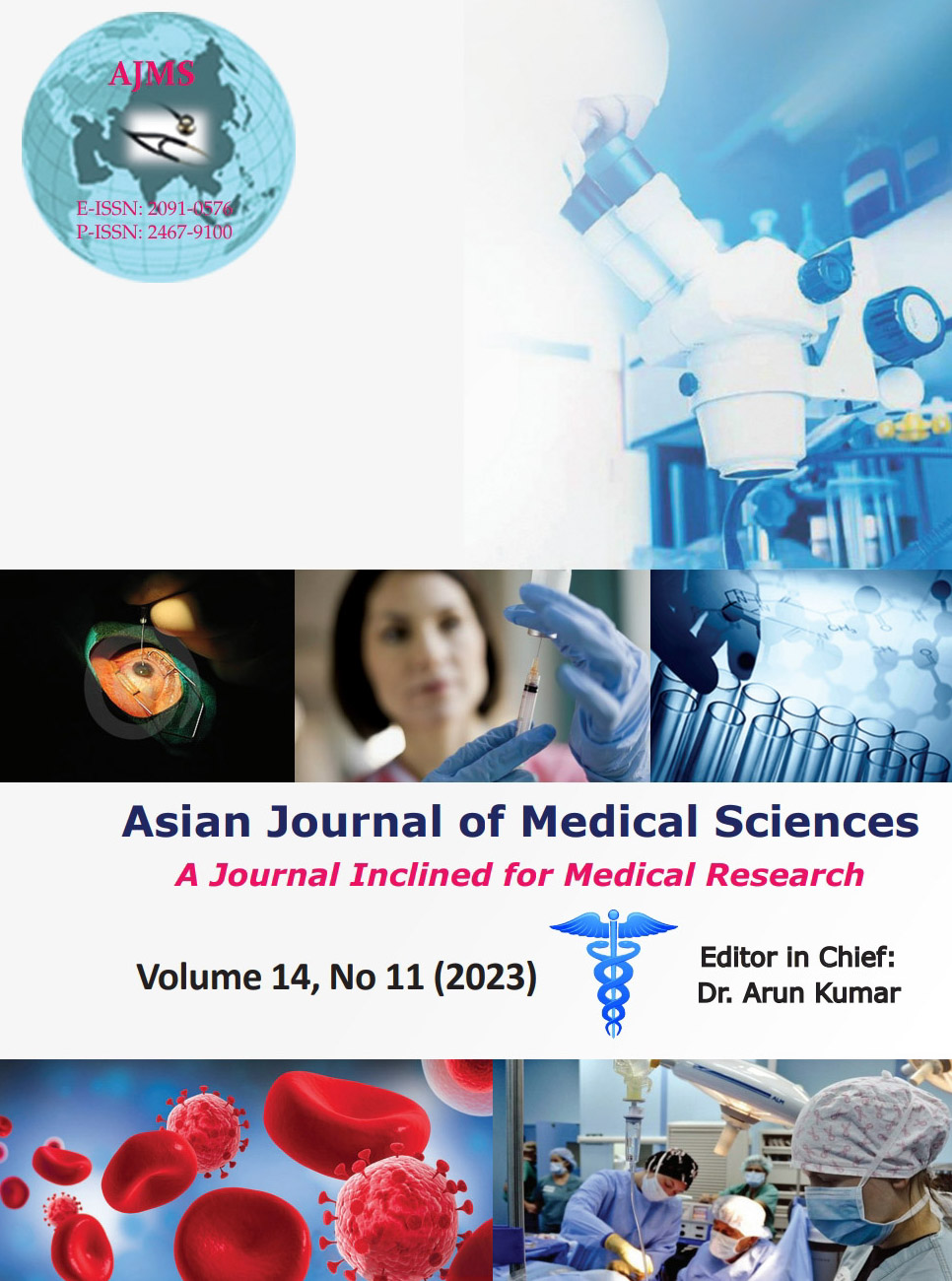Risk factors of post-stroke depression after acute ischemic stroke - A prospective study from a tertiary care hospital in South India
Keywords:
Cerebrovascular disorder; Mood disorder; Risk factor; Vascular depressionAbstract
Background: Post-stroke depression is a major cause for poor functional and rehabilitation recovery.
Aims and Objectives: The aims of the study were to determine risk factors causing depression in acute ischemic stroke.
Materials and Methods: Prospective cohort study was conducted in acute ischemic stroke patients between January 2023 and April 2023 at Travancore Medical College, Kerala. They were divided into – ischemic stroke patients with depression and without depression. Variables studied – age, gender, marital, educational, occupation, socioeconomic status, national institute of health stroke scale (NIHSS) at admission, modified Rankin Scale (mRS) at 1 month, stroke lateralization, risk factors, and lobe and site.
Results: Among 270 patients, 164 (60.7%) were male, 254 (94.1%) were above 50 years, 250 (92.6%) had marriage partner, 164 (60.7%) unemployed, 138 (51.1%) belonged to middle socioeconomic status, and 172 (63.7%) from rural areas. About 91 (33.7%) were in ischemic stroke patients with depression group. In univariate analysis, marriage, socioeconomic status, subcortical location, left hemisphere, severe NIHSS, and high mRS were associated with post-stroke depression. In multivariate analysis, socioeconomic status, subcortical location, and left hemisphere were significant risk factors. Strongest predictor was subcortical location.
Conclusion: Early identification of following risk factors – socioeconomic and marital status, subcortical location, left hemisphere lesion, severe NIHSS, and high mRS in acute stroke patients may help to identify those who are vulnerable for post-stroke depression.
Downloads
Downloads
Published
How to Cite
Issue
Section
License
Copyright (c) 2023 Asian Journal of Medical Sciences

This work is licensed under a Creative Commons Attribution-NonCommercial 4.0 International License.
Authors who publish with this journal agree to the following terms:
- The journal holds copyright and publishes the work under a Creative Commons CC-BY-NC license that permits use, distribution and reprduction in any medium, provided the original work is properly cited and is not used for commercial purposes. The journal should be recognised as the original publisher of this work.
- Authors are able to enter into separate, additional contractual arrangements for the non-exclusive distribution of the journal's published version of the work (e.g., post it to an institutional repository or publish it in a book), with an acknowledgement of its initial publication in this journal.
- Authors are permitted and encouraged to post their work online (e.g., in institutional repositories or on their website) prior to and during the submission process, as it can lead to productive exchanges, as well as earlier and greater citation of published work (See The Effect of Open Access).




